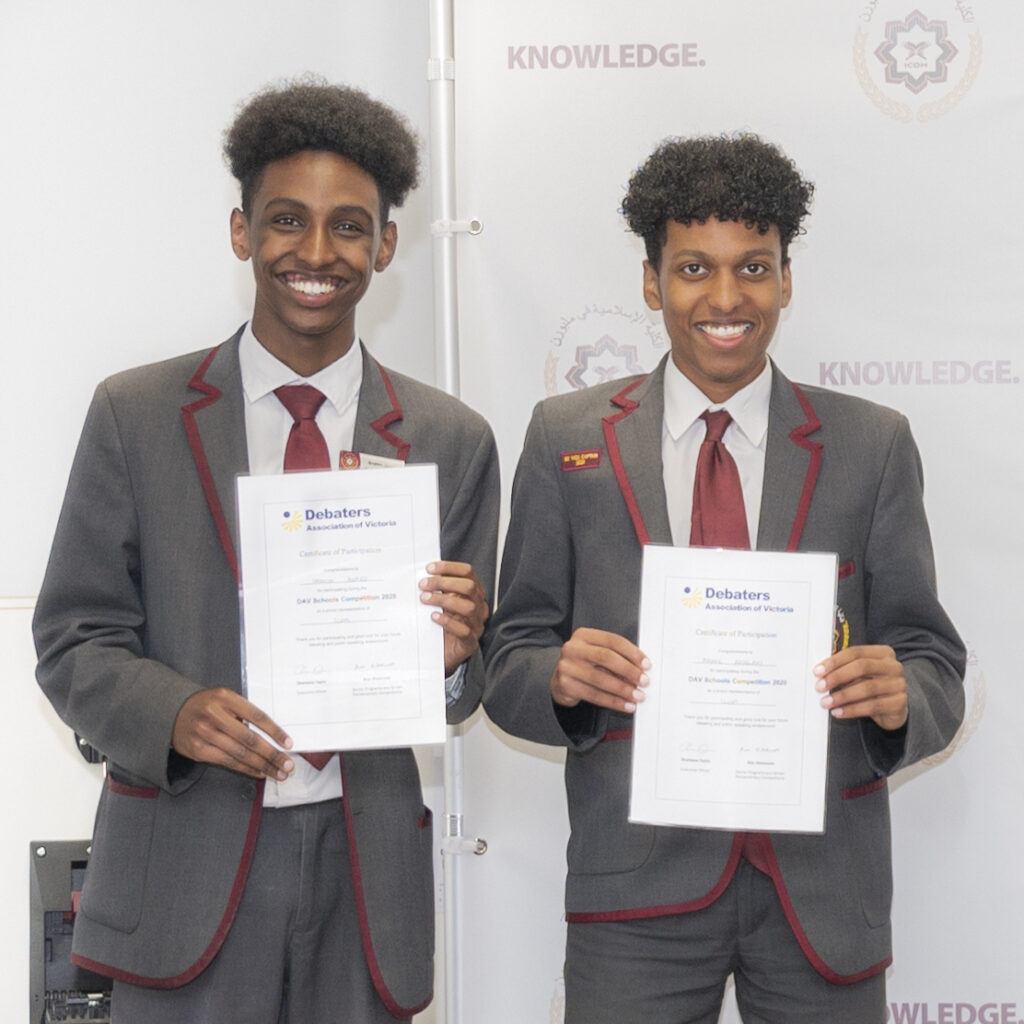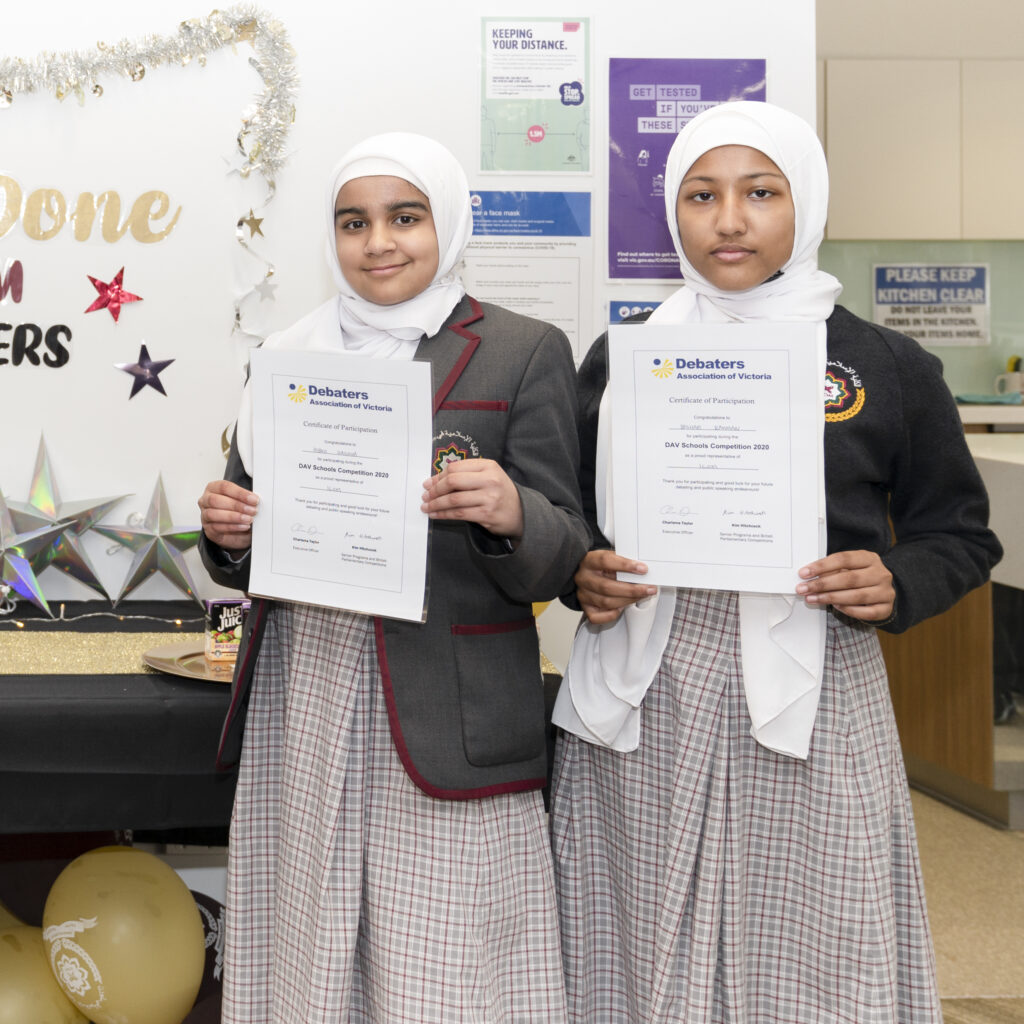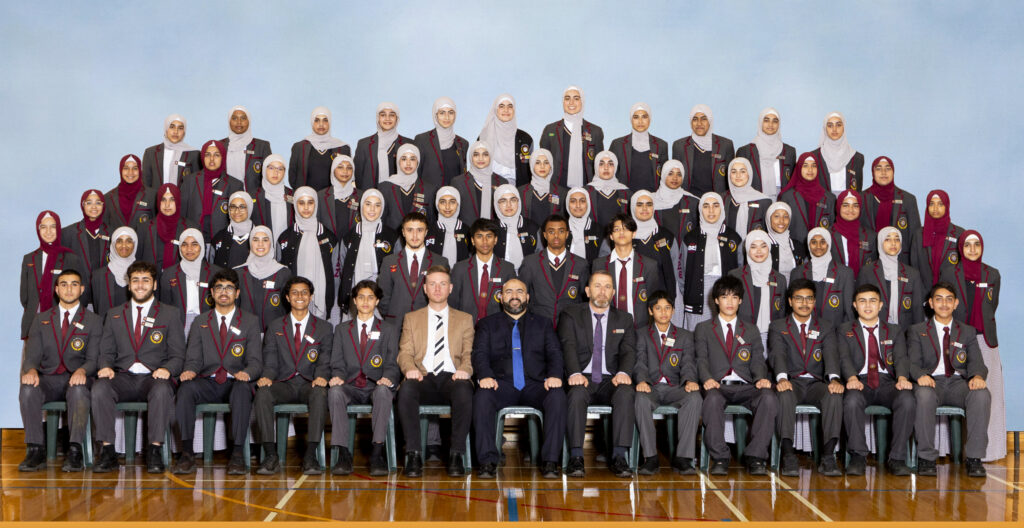Debating Overview
At Islamic College of Melbourne we have a well-established Debating and Public Speaking program led by our Debating and Public Speaking Coordinator Mr Jarrod Carrington.
Why Debate?
Debating is an invaluable skill for students:
- It promotes confidence and effective public presentation.
- It encourages logical and critical thinking, social awareness, and an interest in current affairs.
- It is multi-disciplinary: debating techniques can be used in all subject areas. Its benefits extend through all aspects of the school curriculum.
- It is well directed to address the critical & creative thinking, ethical, intercultural, personal & social dimensions of the Victorian curriculum.
An impartial adjudicator will judge the winner of the debate. The decide the debate in three main areas:
- Matter – Refers to the arguments made. Are they clearly outlined? Has evidence been provided to support key points? Has the point been linked back to the contention of argument?
- Method – Refers to the structure and timing of the speech.
- Manner – The way in which the speech has been delivered.
The speakers are scored out of 100, with the highest scoring speaker winning the best speaker award for the debate.
How Debating Works
Formal debates are conducted by the Debater’s Association of Victoria and involve two sides: one supporting a resolution (affirmative team) and one opposing it (negative team). There are three speakers on each team, each with a specific role to play in the debate.
- First speaker – Sets up their team’s case, proposes a model (if required) and defines key terms. The first speaker should present two arguments supporting the team’s case.
- Second speaker – Rebuts the points made by the first speaker and provides two more substantive arguments.
- Third speaker – Rebuts the entire opposing team’s arguments and sums up their team’s case.
Debating Location – Williamstown High School


2021 Debating Topics
A Grade (Year 12)
-
- Round 1: That Australia should not provide military support to foreign conflicts.
- Round 2: That we regret the rise of artificial intelligence.
- Round 3: Secret Topic
- Round 4: Secret Topic
- Round 5: Secret Topic
B Grade (Year 11)
-
-
- Round 1: That we should implement a maximum wage.
- Round 2: That we should ban political donations.
- Round 3: Secret Topic
- Round 4: Secret Topic
- Round 5: Secret Topic
-
C Grade (Year 10)
-
-
- Round 1: That compulsory voting should be abolished in Australia.
- Round 2: That students should have to complete compulsory volunteering hours every year.
- Round 3: Technology & Innovation
- Round 4: Secret Topic
- Round 5: That medical professionals should not be allowed to strike.
-
D Grade (Year 9)
-
-
- Round 1: That it should be compulsory for students to partake in extracurricular activities.
- Round 2: That we should ban uranium mining in Australia.
- Round 3: That the government should prioritise funding the arts over sprots.
- Round 4: That we should raise the retirement age in Australia.
- Round 5: That we regret the use of participation awards.
-
Plain English Speaking Award
PESA is a public-speaking competition for students aged 15-18 years. It provides an excellent opportunity for students to build self-confidence and extend their skills in oral communication, speech writing and research.
The competition encourages students from government, Catholic and independent schools to speak to their peers from other schools on topics they are passionate about.
In Australia, each year states and territories organise and conduct competitions at school, regional and state levels. State winners then go to the national final, which is held in the various states and territories on a rotational basis.
In Victoria, PESA is organised and conducted by the Victorian Curriculum and Assessment Authority.
Secret Topics
Secret topics are released one hour before the debate begins. Teams should arrive an hour and fifteen minutes before the scheduled debating time to allow time for roll call.
Advised topics are released in the same way as secret topics, but the general subject area of the topic is known in advance.
Junior Debating
Our Years 7-8 debaters take part in a junior debating competition that takes place at the Islamic College of Melbourne in the Secondary Village. The junior debaters are trained over two afternoons at school. They then participate in three debates with schools across the Wyndham Region who attend ICOM to participate.
It’s an exciting opportunity for younger secondary students to get involved.
This competition takes place across Term 4. Expressions of interest will be sent out to students in Term 3.

